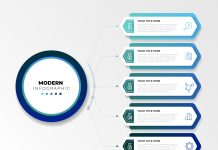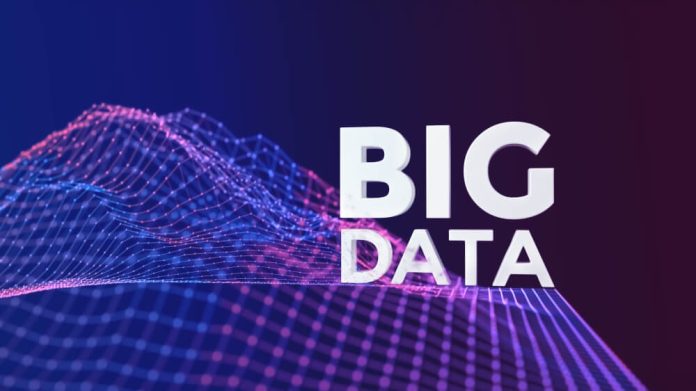In the digital age, data has become the cornerstone of decision-making across industries, and B2B marketing is no exception. Big Data has evolved from a buzzword to a crucial tool that enables businesses to make smarter, more informed decisions. Utilizing vast amounts of metrics enables B2B marketers to gain comprehensive customer insights, enhance their marketing strategies, and improve the overall customer experience.
But how exactly is Big Data changing the landscape of B2B marketing? Let’s dive into how this powerful tool is transforming strategies and driving new opportunities in the business-to-business space.
What Is Big Data and How Does It Apply to B2B Marketing?
Big Data refers to large and complex sets of insights that traditional data-processing software can’t handle. It includes both structured and unstructured data, which can be gathered from various sources such as social media, customer interactions, sales stats, website analytics, and more.
In B2B marketing, large-scale metrics encompass insights that businesses use to analyze customer behaviour, purchasing patterns, and other critical aspects of the sales journey. This information is instrumental in shaping marketing strategies that are data-driven and customer-focused.
Types of Data Used in B2B Marketing
- Customer Data: This includes detailed information about a business’s clients, such as their purchase history, preferences, and demographic details.
- Behavioural Insights: Behavioral data helps businesses understand how customers interact with their content, products, and services online, including page visits, clicks, and social media activity.
- Transactional Input: The stats captured from each business transaction provide valuable insights into customer spending patterns and sales cycles.
- Market Insights: This includes trends, competitor analysis, and industry-specific insights that can guide marketing decisions.
Data-driven insights enable B2B marketers to effectively understand their target audience by analyzing vast amounts of information and refining their approach.
Personalization and Targeting with Large Datasets
One of the most significant ways that Big Data is transforming B2B marketing is through personalization. In the past, marketing strategies often took a one-size-fits-all approach. Today, B2B companies can tailor their marketing efforts to specific segments of their audience, improving engagement and conversion rates.
Enhanced Customer Segmentation
large datasets allow marketers to break down their audience into granular segments based on behavior, preferences, purchase history, and even the stage in the sales funnel. This enables marketers to deliver more relevant content, offers, and messages to each group.
Predictive Analytics
Using predictive analytics, B2B marketers can forecast customer behavior based on historical data. This enables businesses to anticipate what customers are likely to purchase next, which products they are more likely to engage with, and how long they will remain in the sales pipeline. Armed with this knowledge, businesses can tailor their marketing strategies to meet specific needs at the right time.
Real-Time Personalization
With Big Data, businesses can offer real-time, personalized experiences. For instance, marketers can analyze a visitor’s online behavior and offer personalized product recommendations or content, increasing the chances of conversion.
Improving Decision-Making with Big Data Insights
Making data-driven decisions is crucial for B2B marketers, especially in a landscape that’s constantly evolving. Complex data provides a rich source of insights that allow marketers to optimize their strategies, reduce guesswork, and improve their ROI.
Performance Metrics
Big Data can help B2B companies monitor and measure key performance indicators (KPIs) more effectively. Whether it’s tracking email campaign success, social media engagement, or website traffic, large stats can provide the metrics necessary to determine which tactics are working and which need refinement.
Optimization of Marketing Channels
With an influx of data, B2B companies can evaluate which marketing channels are most effective in reaching their audience. Big Data allows businesses to analyze traffic sources, engagement levels, and conversion rates across multiple channels, ensuring that marketing budgets are allocated to the most effective platforms.
Better Campaign Strategy
Big Data also provides insights into the optimal times for reaching out to customers, the best messaging approaches, and the types of content that resonate with specific audience segments. This information helps B2B marketers craft better, more impactful campaigns that drive results.
The Role of Automation in Big Data-Driven Marketing
Marketing automation is another area where Big Data plays a key role. By combining automation tools with Big Data analytics, B2B marketers can streamline their processes and improve efficiency.
Automated Lead Scoring
Lead scoring is a process that helps businesses determine the quality of leads based on their interactions and behavior. Customer data insights allows for more accurate lead scoring by analyzing patterns in customer activity. With automation, marketers can prioritize leads in real-time and ensure that sales teams are focusing their efforts on the most promising prospects.
Email Marketing Automation
With Big Data, email campaigns can be automated and personalized at scale. Marketers can segment their email lists, trigger specific actions based on customer behavior, and send tailored content or offers. This level of automation improves engagement and saves time while delivering highly relevant messaging.
Challenges of Using LargeDatasets in B2B Marketing
While big data offers numerous benefits, there are challenges that businesses need to address to make the most of it.
Data Quality
To ensure that Big Data can be leveraged effectively, companies need to focus on insight quality. Poor or incomplete stats can lead to inaccurate insights and misguided decisions. B2B companies must invest in data management tools and practices to ensure their data is clean, reliable, and actionable.
Privacy Concerns
With an increasing focus on data security and privacy, B2B marketers must adhere to strict regulations, such as GDPR, when collecting and using customer data. Failure to comply can result in penalties and a loss of customer trust.
Data Integration
Another challenge is integrating data from various sources. B2B businesses often use multiple systems for CRM, sales, and marketing, making it difficult to get a unified view of the customer. Effective data integration tools are essential for breaking down silos and enabling a seamless flow of information.
Conclusion
The power of Big Data in B2B marketing cannot be overstated. It provides businesses with deeper insights into their audience, enables hyper-targeted campaigns, and helps drive analytics-informed decision-making. As the technology behind Big Data continues to evolve, B2B marketers will have even more powerful tools at their disposal to refine strategies, enhance personalization, and ultimately increase ROI.
While challenges such as information quality, privacy concerns, and integration still need to be addressed, the benefits far outweigh the obstacles. B2B companies can secure long-term success in a competitive digital landscape by embracing Big Data and adopting an intelligent, analytics-driven approach.
I hope you find the above content helpful. For more such informative content please visit Techedgedemand.









